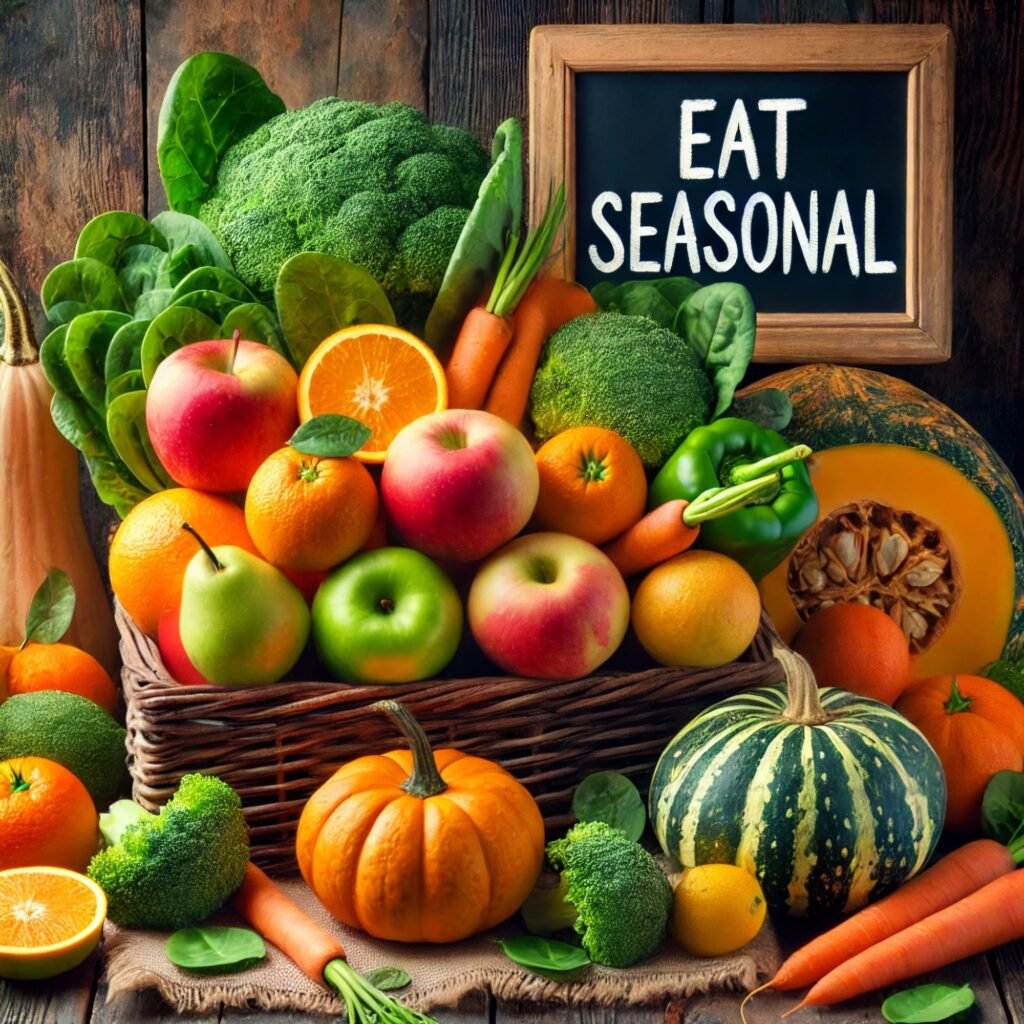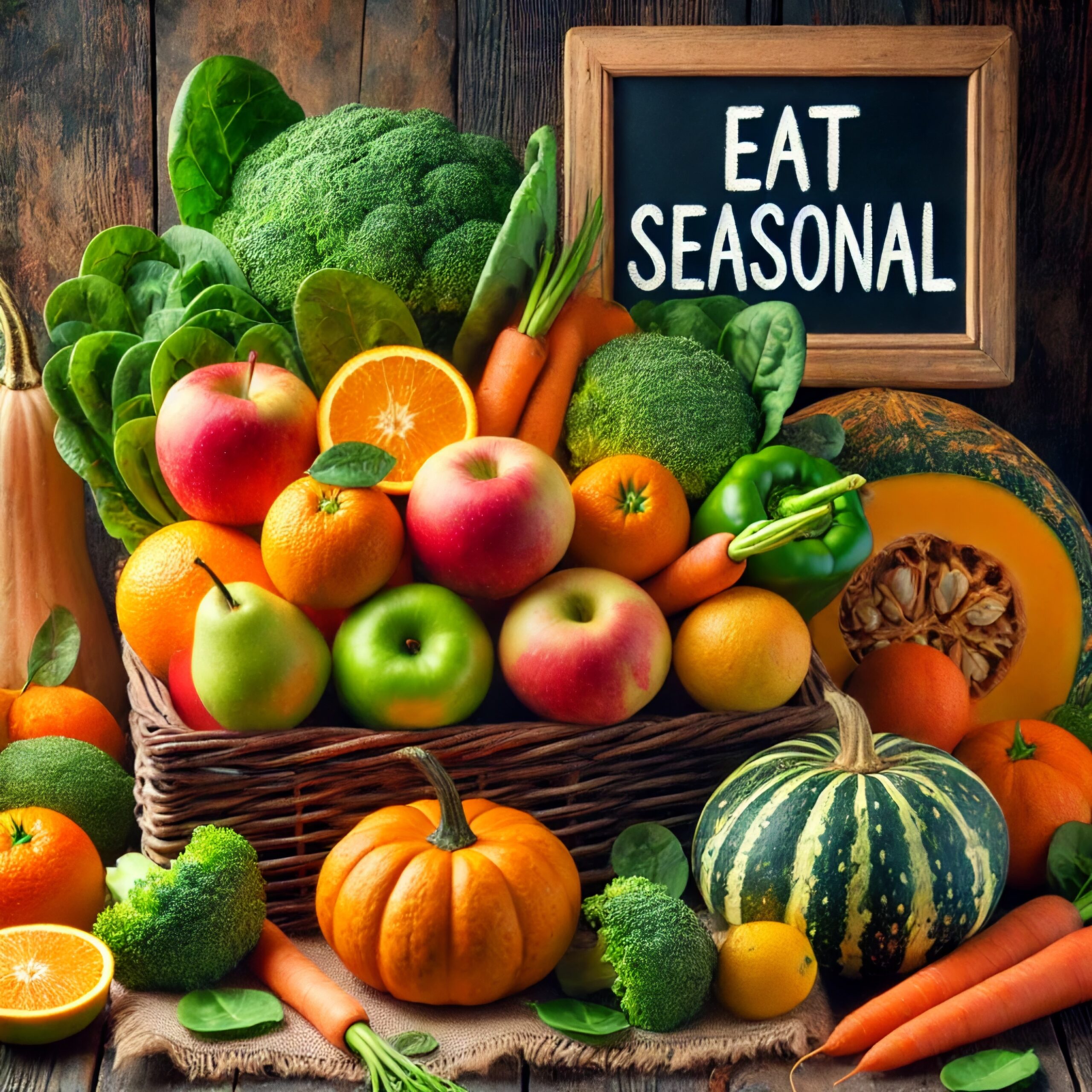Eating seasonal fruits and vegetables is more than a trend. It’s a healthier, tastier, and more sustainable choice. Learn why it matters and how it benefits your health and the planet.
Better Taste and Nutritional Value
Seasonal produce tastes better because it’s fresher and harvested at its peak.
More nutrients: Fruits and vegetables lose nutrients over time. Eating seasonal fruits and vegetables fresh preserves their vitamins and minerals.
Enhanced flavor: Seasonal produce is naturally ripe and full of flavor, making your meals more enjoyable.

Supporting Local Farmers
Buying seasonal produce supports local agriculture and communities.
Fewer food miles: Local produce requires less transportation, reducing environmental impact.
Stronger communities: Supporting farmers helps sustain local economies.
Cost-Effective and Budget-Friendly
Seasonal fruits and vegetables are often more affordable.
Abundance lowers costs: When in season, produce is plentiful and cheaper.
Less waste: Fresher produce lasts longer, reducing food waste.
Environmentally Friendly Choice
Seasonal eating reduces your carbon footprint.
Fewer resources used: Growing seasonal crops requires less energy and fewer chemicals.
Eco-conscious eating: Buying local and in-season supports sustainable farming practices.
How to Eat Seasonally
1. Visit local markets: Farmers’ markets offer the freshest seasonal options.
2. Plan your meals: Focus on what’s in season for inspiration.
3. Preserve produce: Freeze or can seasonal fruits and vegetables for later use.
Discover More Health and Nutrition Tips
Check out these pages for more advice:
Nutrition for practical tips.
Wellness Eats for seasonal recipes.
Health Journal for in-depth health insights.
Eating seasonally is a simple step toward a healthier, tastier, and more sustainable lifestyle!
You Might Also Like:
A List of the Healthiest Seasonal Ingredients
Nutritional Profiles of Summer, Autumn, Winter, and Spring Foods
